And iirc they won't self combust as long as the stuff that got thermal runaway didn't touch the electrolytesLFP batteries are my personal favorite because I tested them for durability and cycle life years ago and they were pretty awesome. I know they were not as energy dense so the range was a bit lower but they were very robust.
Install the app
How to install the app on iOS
Follow along with the video below to see how to install our site as a web app on your home screen.
Note: This feature may not be available in some browsers.
You are using an out of date browser. It may not display this or other websites correctly.
You should upgrade or use an alternative browser.
You should upgrade or use an alternative browser.
Electric Vehicle Thread!
- Thread starter Grall
- Start date
Gotion, a Chinese battery company have recently announced their LMFP (lithium manganese iron phosphate) batteries:
Much higher capacity than LFP but similar costs and life cycle. Lower capacity than NMC batteries, but much cheaper and good enough capacity. They will be supplying Volkswagen with these batteries so that's a good start. We'll no doubt see BYD and Tesla trying to duplicate the technology!
Much higher capacity than LFP but similar costs and life cycle. Lower capacity than NMC batteries, but much cheaper and good enough capacity. They will be supplying Volkswagen with these batteries so that's a good start. We'll no doubt see BYD and Tesla trying to duplicate the technology!
Mariner that sounds awesome. The cycle life is a bit lower (than LFP) which is a bummer but they certainly sound superior to what most companies are using now. Of course they will be behind patent protection (as they should be it took work) so who knows how far they will get in percentage of vehicles that use them. Also we already have all these new battery factories built by other companies that may not want to pay to license, but they do sound very nice.
The headlines talk about a 600 mile battery (understandable marketing), but we'd be better off seeing them built as 300 mile batteries, or even 200 miles and building 2 or 3 times as many of them! If a 600 mile battery is produced, the car itself is going to be falling to pieces before they reach 2,000 cycles so it would be interesting to see how they would be repurposed. New cars with second-hand batteries would seem a strange concept.
There will always be stationary energy storage required but you'd hope cheaper chemistries such as the nascent sodium ion or perhaps flow batteries would be used for those. Keep the higher energy density chemistries for where they are most needed.
There will always be stationary energy storage required but you'd hope cheaper chemistries such as the nascent sodium ion or perhaps flow batteries would be used for those. Keep the higher energy density chemistries for where they are most needed.
Toyota has changed their EV plans and one of the models to come out of this direction will be a sports car with fake motor sounds and ...
a "virtual manual gear box" which will simulate manual transmission characteristics like downshifting or some shaking if a gear shift is done improperly -- not actual stalls though presumably.
Read in CNN Business: https://apple.news/A7Nsy6BKaRE-K5kcftr7jiw
Basically Toyota is being dragged kicking and screaming into the EV transition. Apparently the family chairman Toyoda, a driving enthusiast, was part of the people pushing for this.
Maybe they hope the nostalgia of sports car manual driving will keep demand going for ICEs.
a "virtual manual gear box" which will simulate manual transmission characteristics like downshifting or some shaking if a gear shift is done improperly -- not actual stalls though presumably.
Drivers will even be able to "downshift," a process also known as engine braking. That's when the driver selects a lower gear and releases the clutch pedal without pressing the gas pedal at all. Then, the friction of the unpowered engine slows the car without the driver having to use the brakes.
Toyota's virtual manual transmission includes programming that will allow drivers to realistically experience using it badly, up to a point. If the driver doesn't "give it enough gas" or selects the wrong gear the car will shake and buck, just like a gas-powered manual transmission car would. The car's computer will limit how far the shaking will go to avoid stress on the battery.
Read in CNN Business: https://apple.news/A7Nsy6BKaRE-K5kcftr7jiw
Basically Toyota is being dragged kicking and screaming into the EV transition. Apparently the family chairman Toyoda, a driving enthusiast, was part of the people pushing for this.
Maybe they hope the nostalgia of sports car manual driving will keep demand going for ICEs.
The software mods market would flourish with that, probably.
A UN body is deciding right now whether to allow commercial deep-sea mining in international waters for metals used for EV batteries.
/cloudfront-us-east-2.images.arcpublishing.com/reuters/3GVBU74M4BMIVF6YZFM6GSQCA4.jpg)
 www.reuters.com
www.reuters.com
This Economist podcast episode discusses a paywalled article in which they make the case for deep-sea nickel mining.

 www.economist.com
www.economist.com

 www.economist.com
www.economist.com
Nickel will either be mined from the deep sea or the rain forests in Indonesia, which will be cleared to mine nickel and cause all kinds of runoff into the ocean.
Supposedly there are way more wildlife in the rain forests than the deep sea ocean floor where the nickel nodules are lying on the floor, just to be scooped up. The process involves filtering out the silt once the nodules are pumped up to the ships and then the silt water is injected back into the floor, which would cause the churning of sediments.
I would assume environmental groups would be opposed to razing down Indonesian rain forests to mine nickel but presumably they are for the EV transition in general?
The other aspect, cobalt mining, also a dirty process and also has serious human rights issues as far as how workers are treated and exploited in Africa.
Mining companies say the ocean floor is potentially rich in metals like nickel and cobalt used in batteries for electric vehicles, so their extraction will support the global energy transition.
Any permitting delay will hurt the prospects of Canada's The Metals Company (TMC.O) (TMC), which has led efforts to exploit seabed minerals in the Pacific. The company was not immediately available to comment.
Environmental groups warn that the use of heavy machinery to extract "polymetallic nodules" from ocean floors could cause irreparable damage to marine ecosystems, destroying habitats, churning up sediment and disrupting migratory routes.
TMC says that while deep-sea mining will have some ecological impact, it would be less damaging than land-based extraction.
At the heart of the discussions is a loophole known as the "two-year rule", which says the ISA council must "consider and provisionally approve" applications two years after they are submitted, even though it has yet to finalise related regulations. The Pacific island of Nauru, TMC's sponsoring state, triggered the loophole in July 2021.
Nauru has indicated it would submit a "plan of work" to the ISA's technical committee this year but the committee is not expected to formally recommend approval, said Sian Owen of the Deep Sea Conservation Coalition, a non-government environmental group.
"This is a reflection of the growing momentum, globally and also within the ISA Council, of a move towards a pause," she told a briefing. Germany, New Zealand and Switzerland have called for a moratorium, while France supports an outright ban.
ISA is responsible for exploration in sea areas beyond national jurisdictions, and its decisions will not prevent countries from digging for minerals in their own territorial waters. Norway recently announced plans to open up 280,000 square kilometres (108,000 square miles) to exploration.
Beyond the environmental impact, soaring costs and uncertain economic returns could also turn off investors.
/cloudfront-us-east-2.images.arcpublishing.com/reuters/3GVBU74M4BMIVF6YZFM6GSQCA4.jpg)
Deep-sea metal rush in doubt as regulatory body meets
Plans to extract minerals from the ocean floor are expected to be put on hold next week at a meeting of the U.N. body regulating the sector, with environmental and economic risks threatening to scupper the industry before it begins.
This Economist podcast episode discusses a paywalled article in which they make the case for deep-sea nickel mining.

An interview with Kyrylo Budanov, Ukraine’s spymaster
Also on the daily podcast: why nickel should be mined from the seafloor and remembering autism’s “Case 1”

The world needs more battery metals. Time to mine the seabed
Getting nickel from the deep causes much less damage than getting it on land
Nickel will either be mined from the deep sea or the rain forests in Indonesia, which will be cleared to mine nickel and cause all kinds of runoff into the ocean.
Supposedly there are way more wildlife in the rain forests than the deep sea ocean floor where the nickel nodules are lying on the floor, just to be scooped up. The process involves filtering out the silt once the nodules are pumped up to the ships and then the silt water is injected back into the floor, which would cause the churning of sediments.
I would assume environmental groups would be opposed to razing down Indonesian rain forests to mine nickel but presumably they are for the EV transition in general?
The other aspect, cobalt mining, also a dirty process and also has serious human rights issues as far as how workers are treated and exploited in Africa.
Hopefully non nickel batteries gonna get more popular so the increased demand for nickel mining would be a bit slower
D
Deleted member 2197
Guest
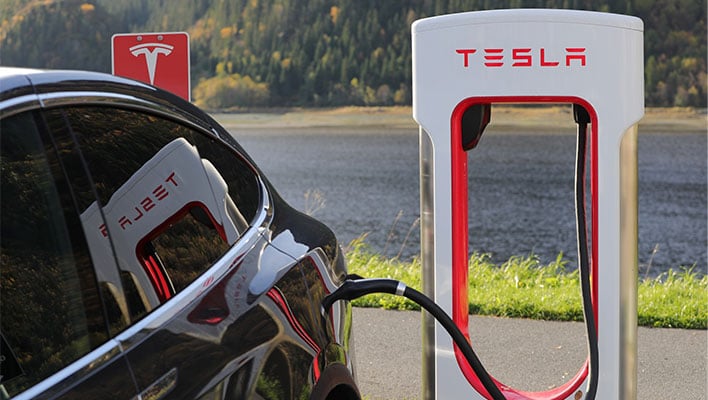
AMD Chip Flaw Allows Free Tesla Paid Car Features And It's Unpatchable
Using low-cost, off-the-shelf parts, security researchers found they could essentially jailbreak Tesla's newer vehicles with AMD hardware to unlock paid features at no cost.
Outside of that, however, the researchers say this method can be used to unlock certain paid features for free. It's not clear if that also includes more expensive amenities such as Enhanced Autopilot and/or Full Self-Driving functionality, which cost $6,000 and $15,000, respectively. At the very least, however, it sounds like hundreds of dollars worth of paid features are accessible with this exploit. And being supposedly unpatchable, it means Tesla can't simply roll out a software update to mitigate it.
Last edited by a moderator:
Another reason to not buy Tesla, they are the worst at collecting and protection personal data of their car owners, per the Mozilla Foundation.
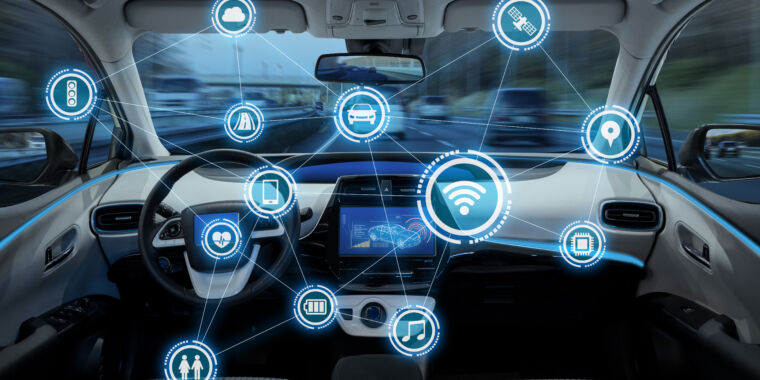
 arstechnica.com
arstechnica.com
All carmakers are bad with these policies and practices, in part because the laws haven’t caught up with cars now being used to monetize and Invade privacy.
But Tesla and then Nissan lead the pack of a bad lot.

Connected cars are a “privacy nightmare,” Mozilla Foundation says
Data privacy protections are almost nonexistent when it comes to automobiles.
All carmakers are bad with these policies and practices, in part because the laws haven’t caught up with cars now being used to monetize and Invade privacy.
But Tesla and then Nissan lead the pack of a bad lot.
D
Deleted member 2197
Guest
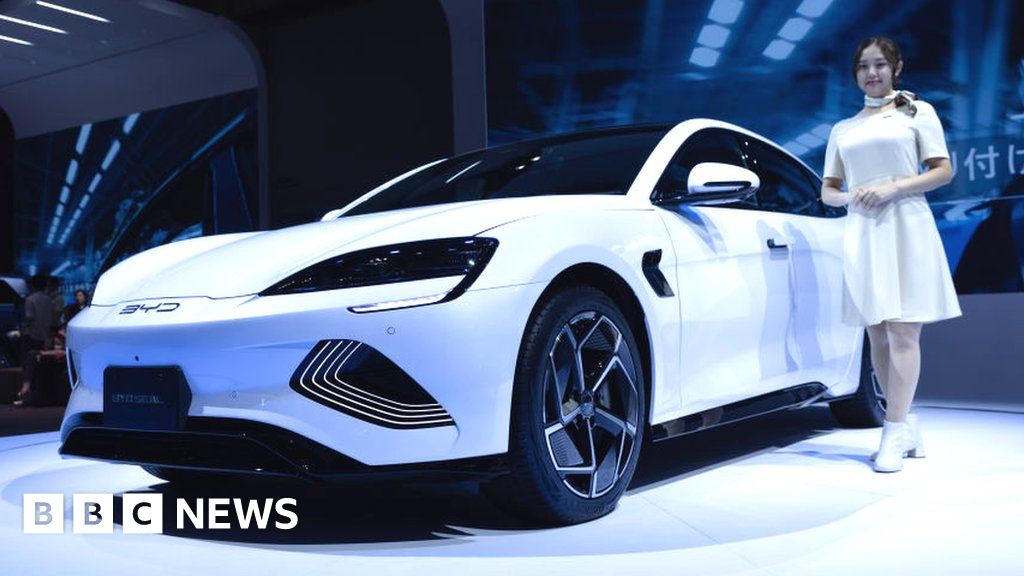
China’s BYD overtakes Tesla's electric car sales in last quarter of 2023
Electric-only deliveries from Chinese company BYD outpaced Elon Musk's Tesla for the first time.
The firm said on Monday it had sold a record 526,000 battery-only vehicles in the last three months of 2023.
That was helped by a more than 70% surge in sales in December.
US-based Tesla is scheduled to release its latest quarterly vehicle production and delivery figures before Wall Street opens on Tuesday.
For the year as a whole, Shenzen-based BYD said it had sold more than 3 million so-called-new energy vehicles (NEVs), which includes battery-only vehicles and hybrids. Almost 1.6 million of its total sales were battery-only vehicles, the firm said.
Industry analysts have forecast that Tesla sold around 483,000 electric vehicles in the last three months of 2023 and 1.82 million for the year as a whole.
...
Since 2008 BYD has counted veteran US investor Warren Buffett's Berkshire Hathaway as a shareholder.
Analysts say BYD owes its growth to its original business - batteries. They are among the most expensive parts of an EV and making them in-house saves BYD a lot of money.
Many of BYD's competitors rely on third-party manufacturers for batteries.
D
Deleted member 2197
Guest
Volkswagen warns against wild imports of its Chinese electric cars
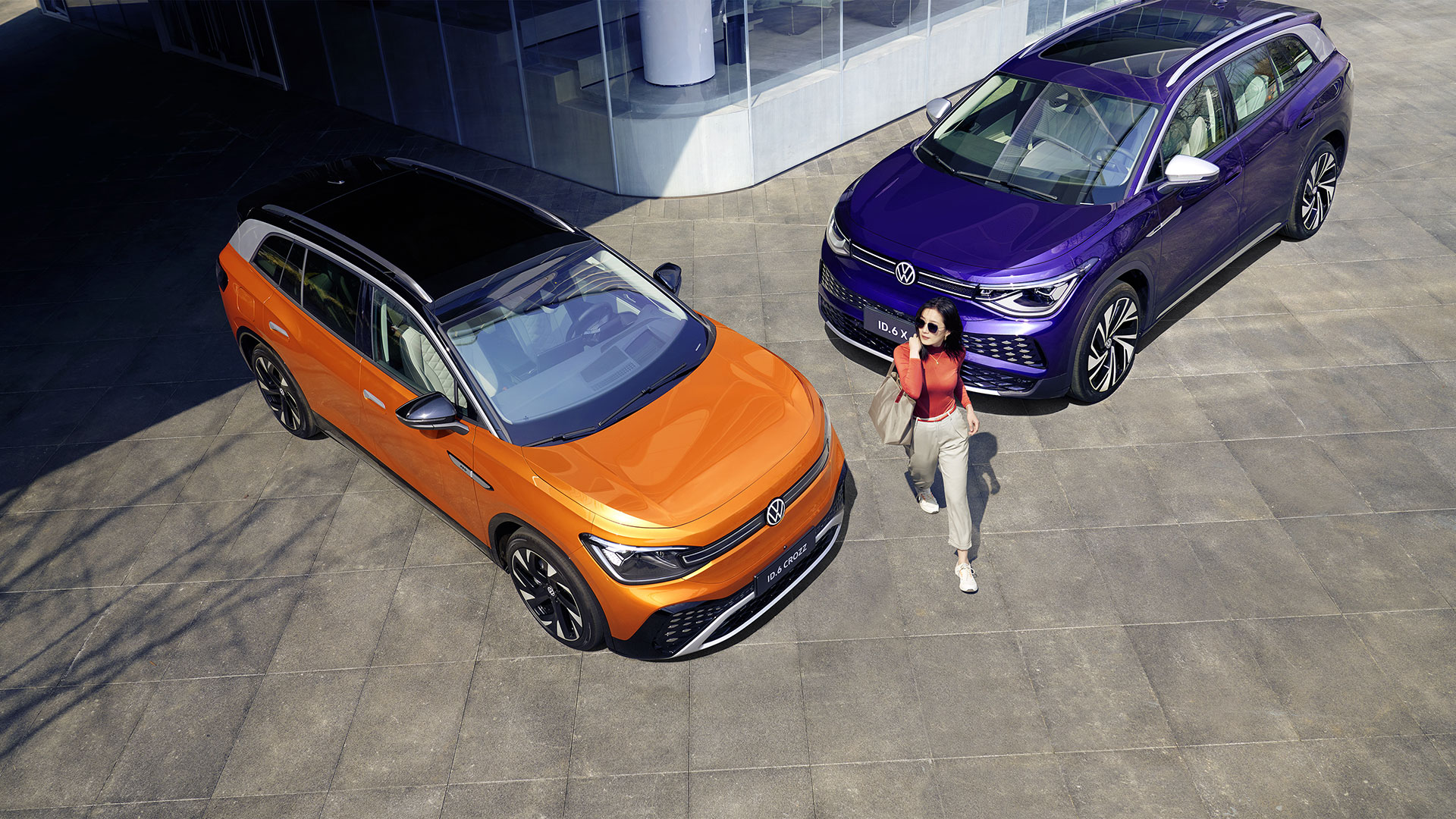
 www.numerama.com
www.numerama.com
Wow, talk about lockdown!

Volkswagen met en garde contre les importations sauvages de ses voitures électriques chinoises
Le constructeur allemand Volkswagen commence à voir apparaître dans plusieurs pays ses voitures électriques fabriquées uniquement pour le marché chinois.
By making electric cars much cheaper in China than in the rest of the world, Volkswagen is confronted with "wild" imports. Dealers are taking these models out of China and importing them to the Middle East, but some of these cars continue on to Europe. These grey market imports pose problems for the German automaker, which is looking to curb this trend before being overwhelmed by these cars.
...
Volkswagen France and its dealer network indicate in black and white that they will not support these vehicles. Electric cars such as the ID.6 imported from China end up in Europe without a manufacturer's warranty, but not only. Vehicles are also not welcome in the brand's network to carry out any maintenance or repairs. Customers of these vehicles will also find themselves without official spare parts from the brand.
Wow, talk about lockdown!
Biden administration backs away from proposed more aggressive CAFE standards as they get pushback from auto manufacturers, car dealers and the United Auto Workers union.
The newer standards would have forced greater sales of EVs sooner, to meet the standards.
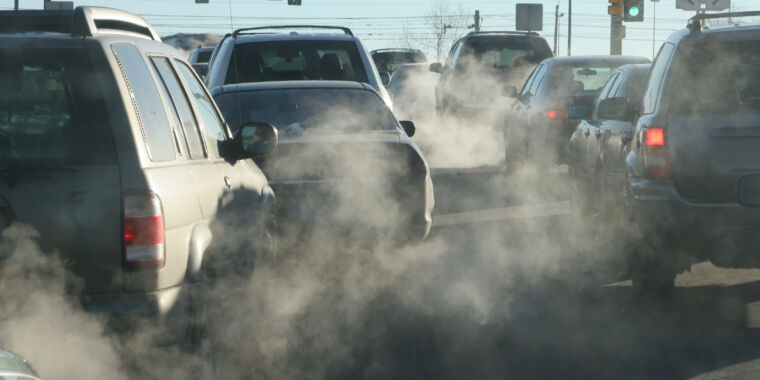
 arstechnica.com
arstechnica.com
It's an election year and Biden got close to the UAW in their strike against the Big 3 and won their endorsement. UAW leadership isn't outright hostile to EVs but they've also expressed that EVs may not necessarily be great for union workers as there's less mechanical component and key EV components like batteries may not be manufactured at union shops.
The newer standards would have forced greater sales of EVs sooner, to meet the standards.
Last year, President Biden's administration published proposed new Corporate Average Fuel Economy regulations for 2027–2030, regulations that would require automakers to sell four times as many zero-emissions vehicles as they do now.
But opposition to the new CAFE standards has been fierce, and now Reuters reports that the White House is backing down and will issue new guidelines with less ambitious goals in the coming weeks.
The White House's goal had been for US EV adoption to reach 50 percent of all new light vehicle sales by 2030, rising to 60 percent by 2032. In part, it proposed changing the modifier applied to each new zero-emissions vehicle when used to calculate an automaker's fleet emissions.
Currently, the rules used by the CAFE regulations overestimate the efficiency of an EV by a large multiple, meaning an automaker can sell comparatively few EVs and yet receive a large boost to their average efficiency. In fact, the current rules create a perverse incentive to make inefficient gasoline-powered vehicles, since the OEMs know these can easily be offset.
The new, tougher rules were praised by environmental organizations like the Sierra Club and the Zero Emissions Transportation Association. But the Alliance for Automotive Innovation—a lobby group for the auto industry—called the rules "neither reasonable nor achievable" despite claiming not to oppose greenhouse gas emissions standards. And the United Auto Workers—which endorsed President Biden's re-election—has claimed the fuel economy regulations would threaten jobs.

White House to weaken climate-fighting fuel efficiency targets for 2030
The plan faced opposition from OEMs, car dealers, and the United Auto Workers.
It's an election year and Biden got close to the UAW in their strike against the Big 3 and won their endorsement. UAW leadership isn't outright hostile to EVs but they've also expressed that EVs may not necessarily be great for union workers as there's less mechanical component and key EV components like batteries may not be manufactured at union shops.
D
Deleted member 2197
Guest
A lot of BS has been spouted about EVs. The latest is that they produce more pollution than ICE because while they may not have CO2 emissions, they are heavier and cause more brake and tire disintegration, thus particulate pollution.
Read in The Guardian: https://apple.news/Aadk2yvlOQo-ZpMQtobo-KA
Greater brake dust is a lie, because EVs are more likely to use regenerative braking, which is actually less use of brakes and parts prone to wear and friction which would cause particulate pollution.
As for tires, while EVs may on average weigh 400 kilograms more, there are other factors at play:
Tailpipe emissions from ICE are more than just CO2 so they will contribute more to pollution than the marginally higher number of particulate emissions from heavier EVs.
A greater factor in the weight delta between vehicles is the increasing sales of SUVs over passenger cars than EV vs. ICE curb weights.
Many of the claims about EVs causing air pollution reference figures from Emissions Analytics, a private company. Founder Nick Molden said that its measurements show that particulate emissions can be 1,850 times more than those from modern car exhausts, which have become cleaner because of regulations. But that headline finding needs some context: the tests have not been peer-reviewed by scientists, and the industry disputes the findings.
Read in The Guardian: https://apple.news/Aadk2yvlOQo-ZpMQtobo-KA
Greater brake dust is a lie, because EVs are more likely to use regenerative braking, which is actually less use of brakes and parts prone to wear and friction which would cause particulate pollution.
As for tires, while EVs may on average weigh 400 kilograms more, there are other factors at play:
The German tyre maker Continental said vehicle and tyre design is less important in determining wear than driving style and the curves of the road (a point also made by Molden). A Continental spokesperson said: “In principle, EVs do not produce more particulates than an otherwise similar internal combustion engine vehicle just because of the battery-induced increased weight.”
There are a lot of moving (and rubbing) parts in any calculation, but some efforts have been made to tot it all up. A study by the Organisation for Economic Cooperation and Development in 2020 estimated “the uptake of electric vehicles will lead to very marginal decreases in total PM emissions from road traffic in future years”. The study found heavier electric cars cause marginally more road and tyre wear for the larger PM 10 particles and the smaller PM 2.5. Yet once engine pollution is added in, petrol and diesel cars were marginally worse.
Tailpipe emissions from ICE are more than just CO2 so they will contribute more to pollution than the marginally higher number of particulate emissions from heavier EVs.
A greater factor in the weight delta between vehicles is the increasing sales of SUVs over passenger cars than EV vs. ICE curb weights.
Tesla's first-mover advantage was always going to be eaten into by the rest of the industry.
But Detroit has been bad, betting on large, expensive EVs, like the Hummer EV. They've probably sold maybe a few hundred of those, wasting limited battery supply chain for a car that takes up 3-4 times the battery capacity of other EVs.
The F-150 sounded great when they announced it, with a starting price of $40k. But the plan was to not offer those base prices for at least a couple of years. They were going to maximize profits with much higher-priced configurations for a couple of years.
So now they're complaining that EVs aren't selling? Maybe it's more that the EVs they put out aren't selling, which isn't too different from when American cars struggled to sell after the oil embargo in the early '80s, when Japanese imports ate Detroit's lunch.
Chevy recently put out the Blazer EV, which are around $60k and up. All sorts of reports about problems and poor reviews.
Oddly, the Honda Prologue EV, which is basically the same EV but apparently different interiors and software, seems to be getting better reviews.
Detroit can put out more hybrids if they really believe the premise that EVs aren't selling because of range-anxiety but if they priced them as high as their EV offerings, then people will buy Honda and Toyota hybrids before they buy Chevy or Ford ones.
But the whole industry seems unprepared for the likelihood that the industry has skimmed all the early adopters willing to spend much more on EVs than ICE cars. The pandemic-fueled buying spree of 2020-2022 is over. People's bank accounts aren't as flush, though the stock market is at record highs.
There's still this expectation by a lot of people that the car they buy must be able to take them on long road trips of several hundred miles, even if most of them rarely take such long drives. It might be easier to convince people that EVs can cover most of their day-to-day driving needs if these EVs as commuter cars were priced $30-35k instead of $50-55k and up.
But Detroit has been bad, betting on large, expensive EVs, like the Hummer EV. They've probably sold maybe a few hundred of those, wasting limited battery supply chain for a car that takes up 3-4 times the battery capacity of other EVs.
The F-150 sounded great when they announced it, with a starting price of $40k. But the plan was to not offer those base prices for at least a couple of years. They were going to maximize profits with much higher-priced configurations for a couple of years.
So now they're complaining that EVs aren't selling? Maybe it's more that the EVs they put out aren't selling, which isn't too different from when American cars struggled to sell after the oil embargo in the early '80s, when Japanese imports ate Detroit's lunch.
Chevy recently put out the Blazer EV, which are around $60k and up. All sorts of reports about problems and poor reviews.
Oddly, the Honda Prologue EV, which is basically the same EV but apparently different interiors and software, seems to be getting better reviews.
Detroit can put out more hybrids if they really believe the premise that EVs aren't selling because of range-anxiety but if they priced them as high as their EV offerings, then people will buy Honda and Toyota hybrids before they buy Chevy or Ford ones.
But the whole industry seems unprepared for the likelihood that the industry has skimmed all the early adopters willing to spend much more on EVs than ICE cars. The pandemic-fueled buying spree of 2020-2022 is over. People's bank accounts aren't as flush, though the stock market is at record highs.
There's still this expectation by a lot of people that the car they buy must be able to take them on long road trips of several hundred miles, even if most of them rarely take such long drives. It might be easier to convince people that EVs can cover most of their day-to-day driving needs if these EVs as commuter cars were priced $30-35k instead of $50-55k and up.
We picked up our '22 Model Y Performance around the middle of November, which is roughly 16 months ago. We've put 17,200 miles on it, the overwhelming majority of which are trips from our home near Memphis, TN to Louisville, KY and Wichita, KS and at least once to Atlanta, GA.There's still this expectation by a lot of people that the car they buy must be able to take them on long road trips of several hundred miles, even if most of them rarely take such long drives. It might be easier to convince people that EVs can cover most of their day-to-day driving needs if these EVs as commuter cars were priced $30-35k instead of $50-55k and up.
We purposefully chose the Model Y over the four cylinder Mazda 6 sedan because it really isn't an imposition to stop a few times to charge when children are along for the ride. Yeah, we could certainly get to our destination somewhat faster with the gasser; it would probably save ~30 minutes on our six hour trip to Louisville and more like an hour and fifteen minutes on our eleven-and-a-half hour trip to Wichita. Realistically, stopping once to Louisville and thrice to Wichita is a welcome respite with two kids and aging parents.
I was once one of the EV road trip naysayers until I made myself rent (Turo) a Model Y to drive from our home to Benton Harbor, MI a few summers ago. After actually using the car to take a seven hundred mile road trip, it became apparent the charging network wasn't going to be the problem I thought it was. And I'm too old to try doing the cannonball run, so a bit of extra delay isn't hurting my feelings. Even more so when I can kick on the FSD and, with incredibly few exceptions, let it drive the entire freeway route without having to think about it.
Similar threads
- Replies
- 9
- Views
- 3K
- Locked
- Replies
- 19
- Views
- 6K
- Replies
- 326
- Views
- 41K
